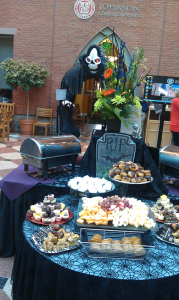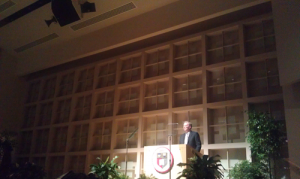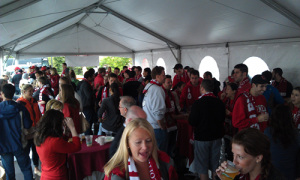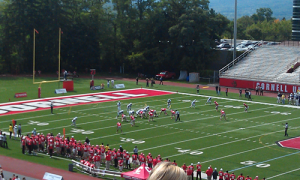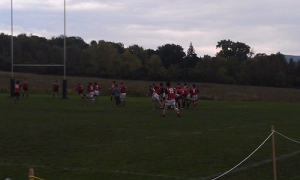Originally Posted:Â 12/5/2012 8:26 PM Â
I promised that I would post about my experience with the Accenture Innovation Challenge and I will deliver on that promise! In good executive summary form, I’ll start with the results. We won!
Background: This was the first year Accenture did a case competition on their 9 advanced degree recruiting campuses, including Stern, Booth, Ross, and Wharton. There are a few things that make this competition different than other competitions.
1) Structure – 80 teams applied, 50 teams presented on-campus, 17 semi-finalist teams (2 per campus) were selected for a PowerPoint only round and short video, 3 were selected as finalists to present at the client and one is the winner.
2) Case Problem – The solution you present, you must be able to implement. I don’t mean Accenture, I mean you. In the final rounds the presentations were to the CEO and senior staff of the nonprofit we were working with (in addition to very senior Accenture practitioners). The winning proposal is then scoped by Accenture and the winning team will have the chance to help implement.
3) Reward – Most competitions have cash or interview rewards for winning (and also typically fewer total teams competing). Accenture offered a guaranteedinternship to the winning team. Not an interview, an internship.
The Challenge: I’m not sure how much I can or can’t say about the challenge itself, but I will say it was for an extremely fun Washington, DC based nonprofit. We were trying to help them increase the number of projects volunteers completed annually. It was a very interesting challenge and there were a few things that I feel made our team successful.
Teamwork: I can’t say this enough – the team I was a part of functioned at an extremely high level. We were able to have open conversation, get solid feedback, let go of our own ideas, embrace ideas of others, circle back to issues and ideas as needed but not run in circles, seriously commit to the project yet keep it fun, and many other traits. Each person brought their own strengths and the team just got stuff done. Even the most talented team will fail if they don’t have the proper chemistry and my team definitely had chemistry.
Preparation: We prepared for this. A lot. I would estimate that each round was 30+ hours of work per team member. At each stage we refined our concept and changed things based on feedback we received. This includes the final round where we had a call with the client and we decided to rework half of our entire concept. The call was Friday at 4. The new deck was done by Monday afternoon and turned in Tuesday night. We practiced presenting our sections, gave feedback on how to work the slide, what points to hit, what words/themes were needed to frame the ideas. Johnson faculty made time to coach us on our presentation style. We also did individual practice and then came together as a group so we wouldn’t burn out. Our preparation enabled us to present our sections to the client rather than at the client – a key difference that shows just how much we cared about our solution AND the client.
Risks: No analysis is complete without risks and mitigation strategies. We all took risks to win this. We missed class and a quiz to participate in the finals and we knew our grades were going to be impacted. The weekend we spent doing the final deck (after that Friday call) also contained a statistics mid-term so we didn’t study as much as we could have. There were other things that are hard to measure: stress, networking, recruiting, relationships, or even just sleep. These were real risks for us which we decided to mitigate by winning 😉 Joking aside, we spent time saying what we could commit. We all knew when people had stopping times. We needed to be sensitive to those things. This was important to mitigate some of the risks and critical to our success.
That’s my summary of the Accenture Innovation Challenge. Good luck to those of you partaking next year!
Part of a series of my re-postings of my blog for the “Life @ Johnson” section of the Samuel Curtis Johnson Graduate School of Management at Cornell University MBA program website.
